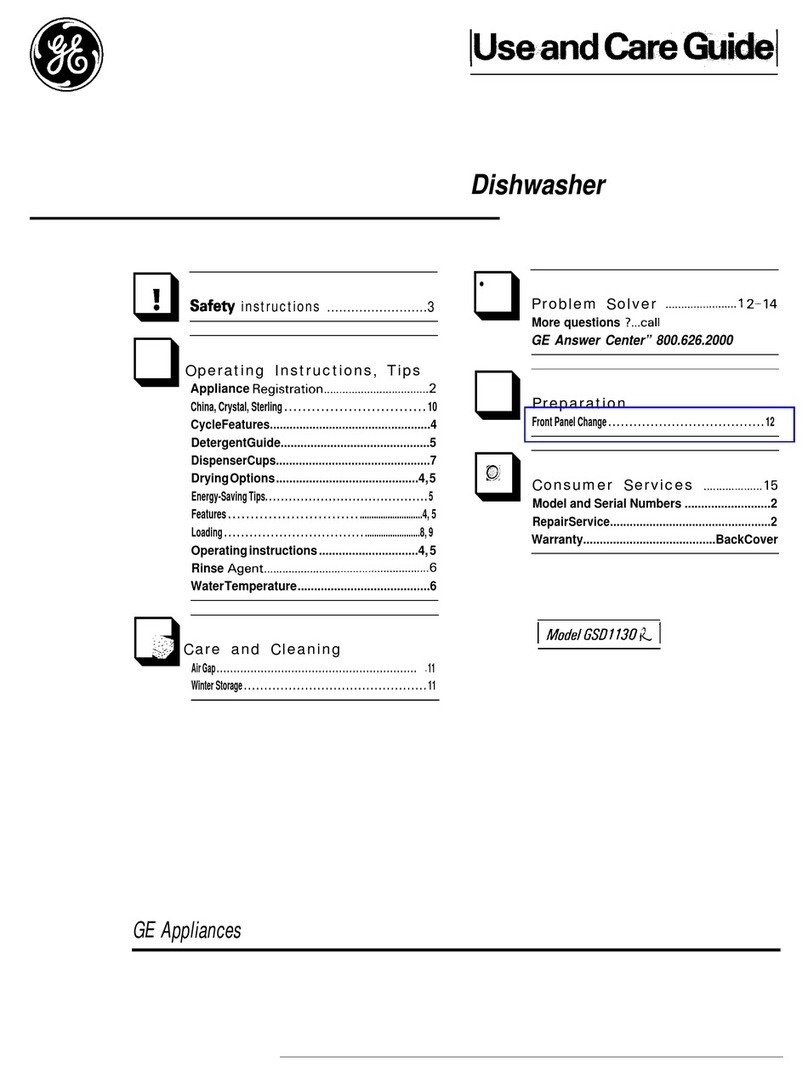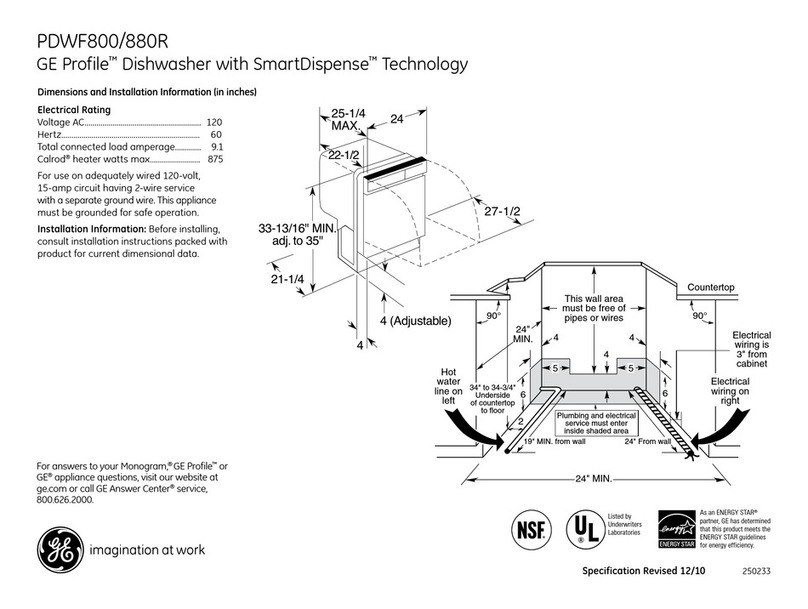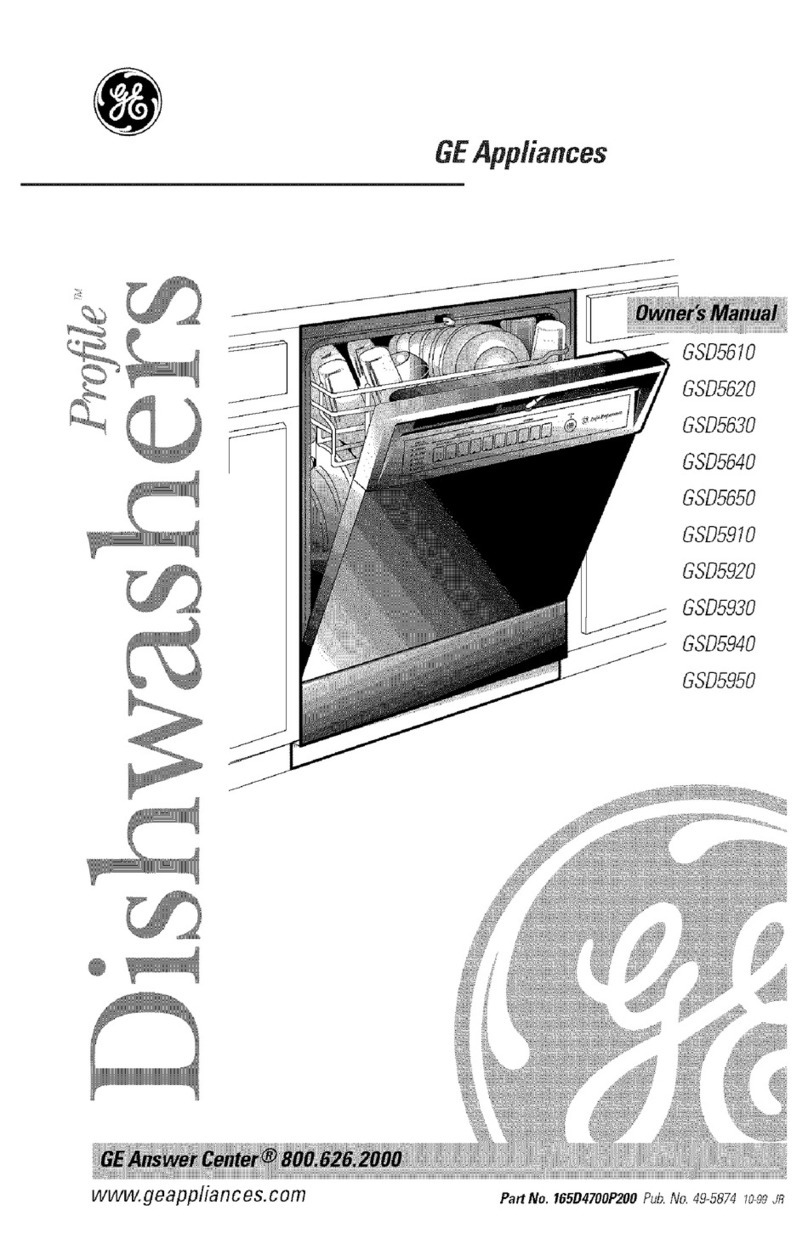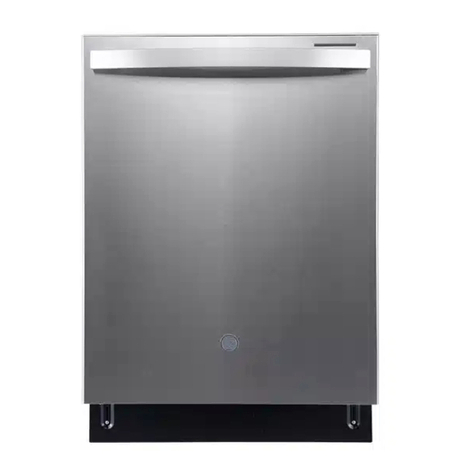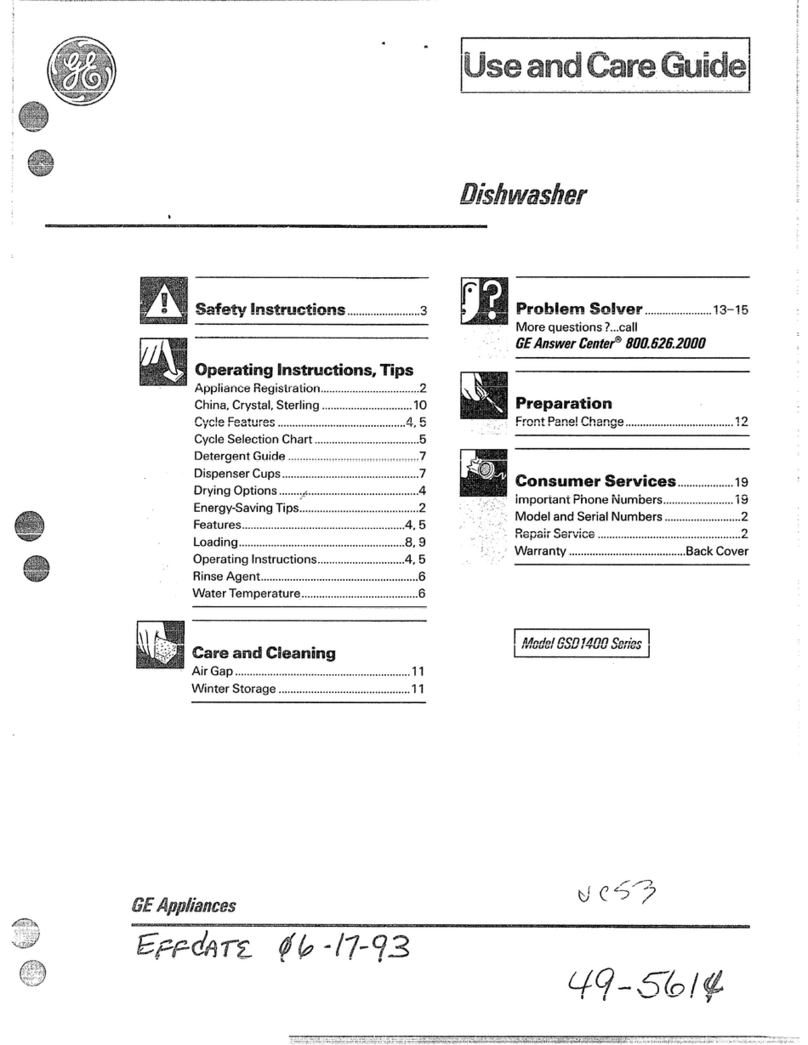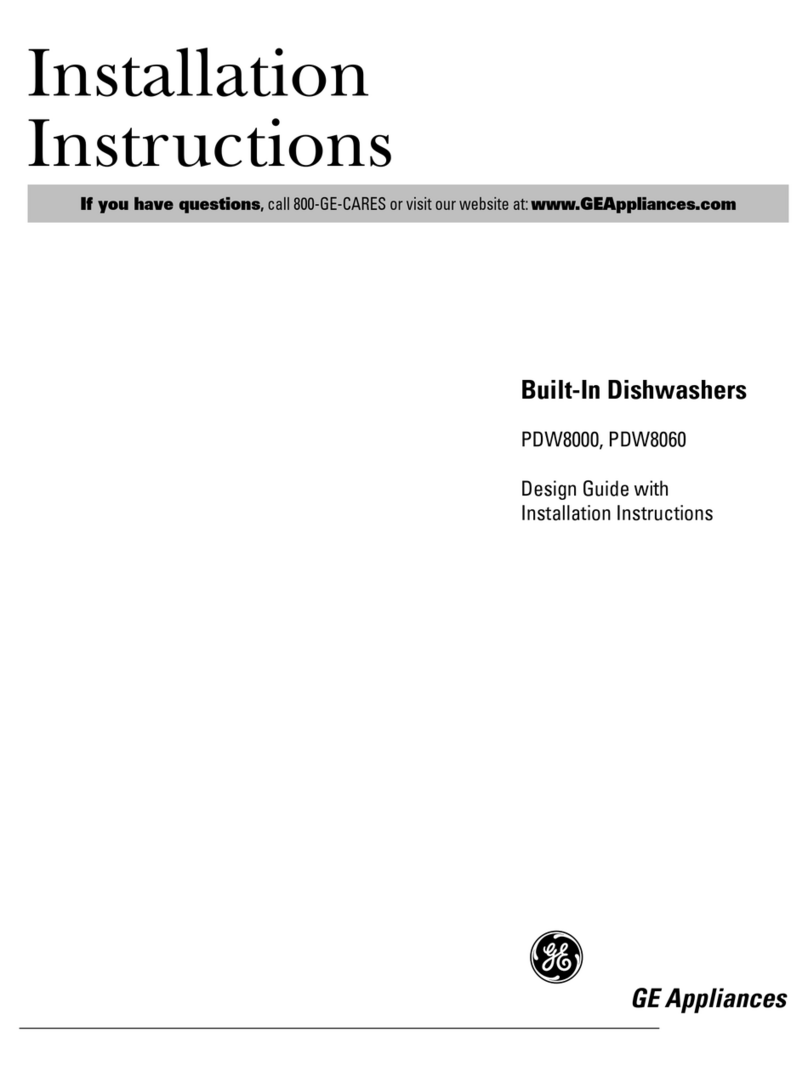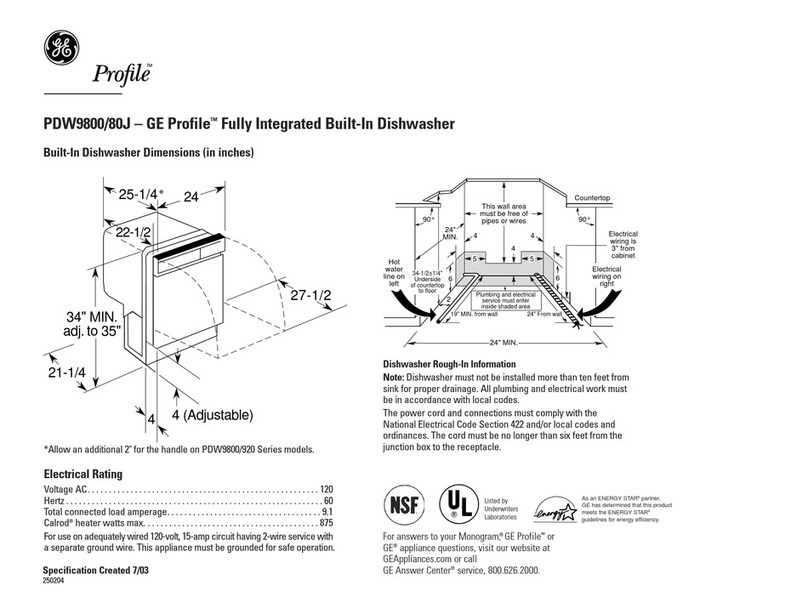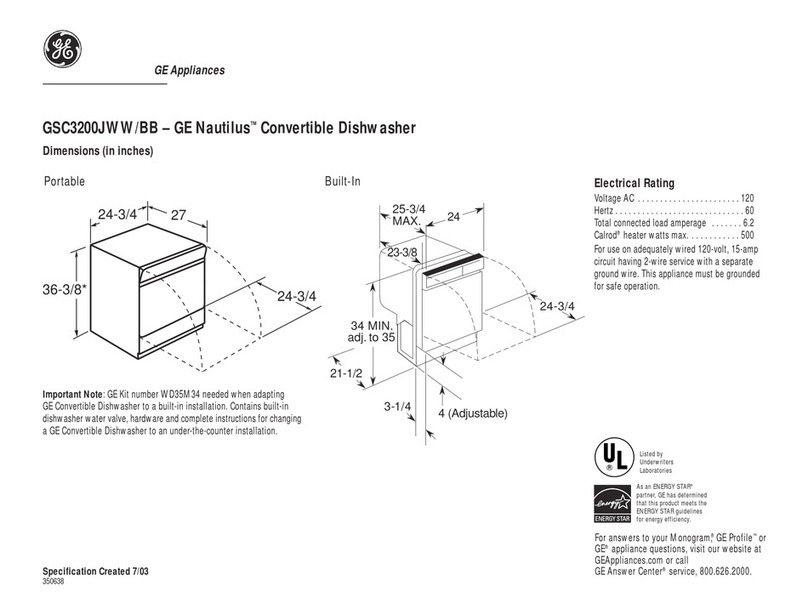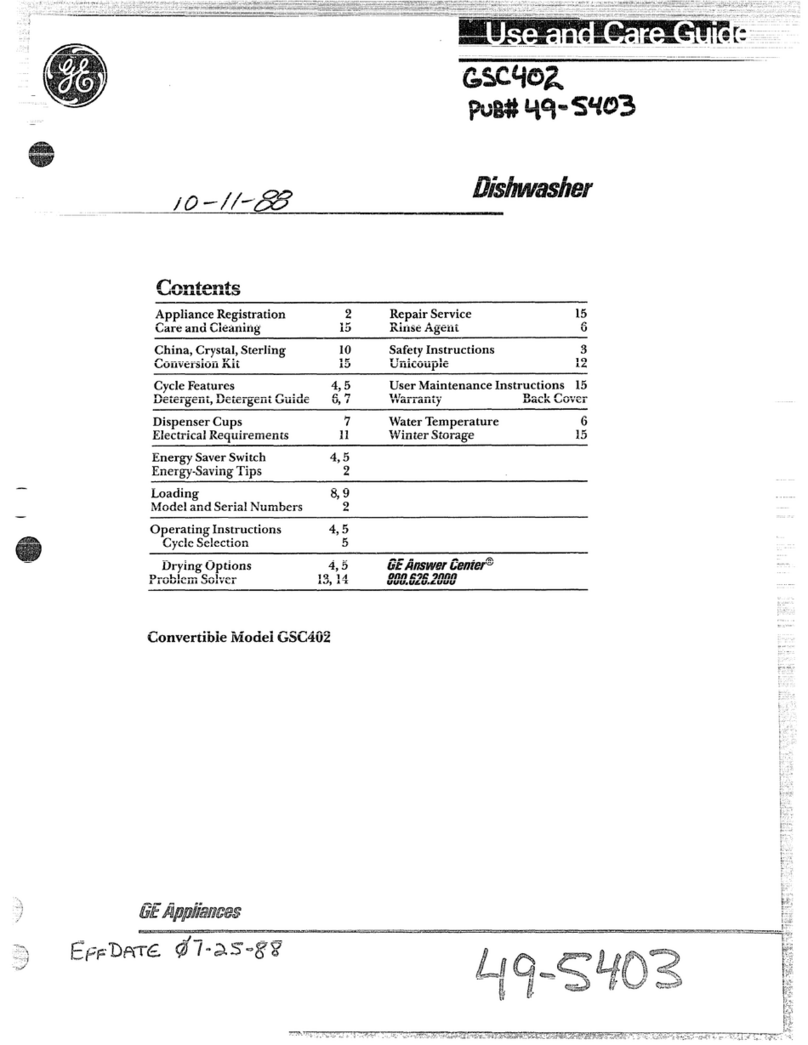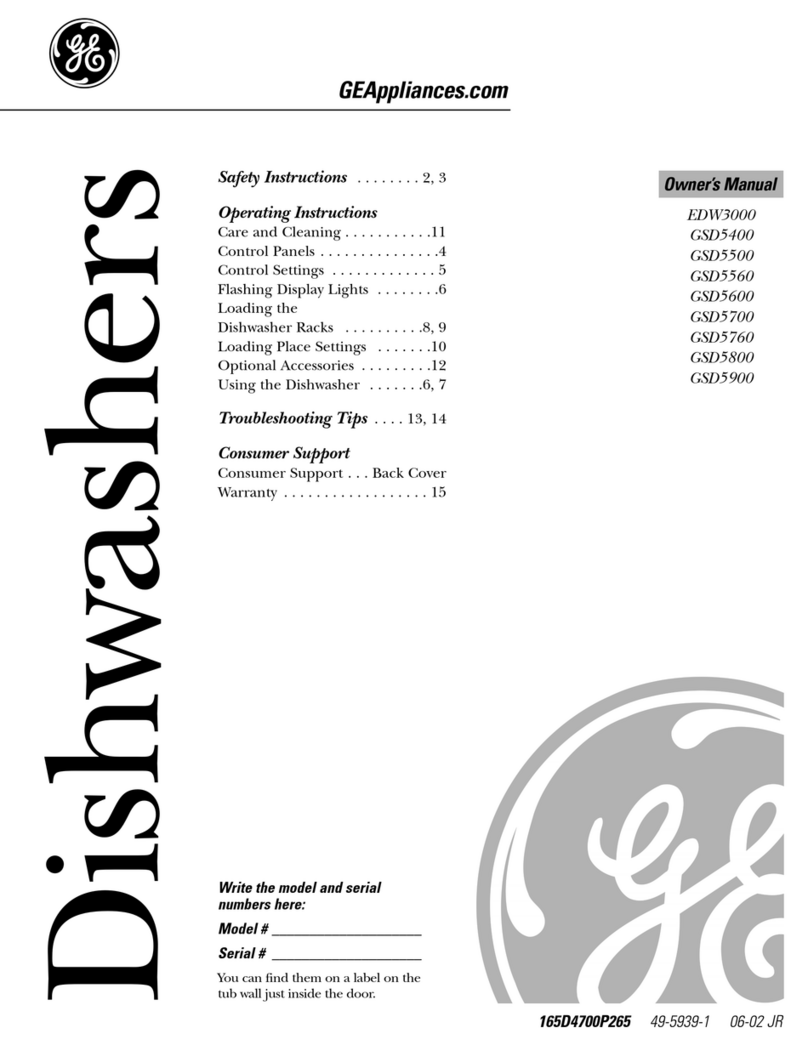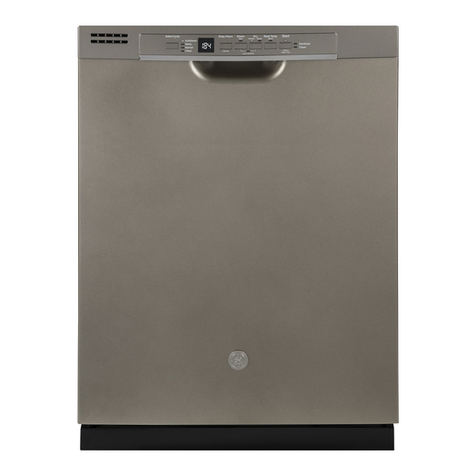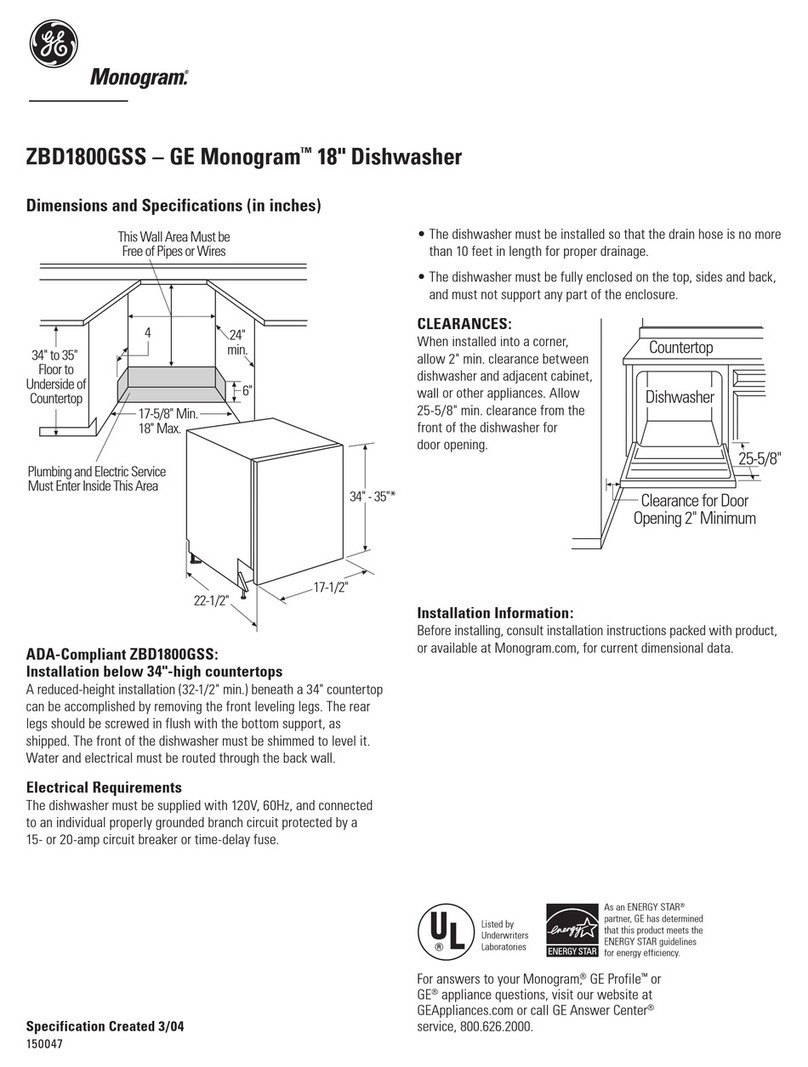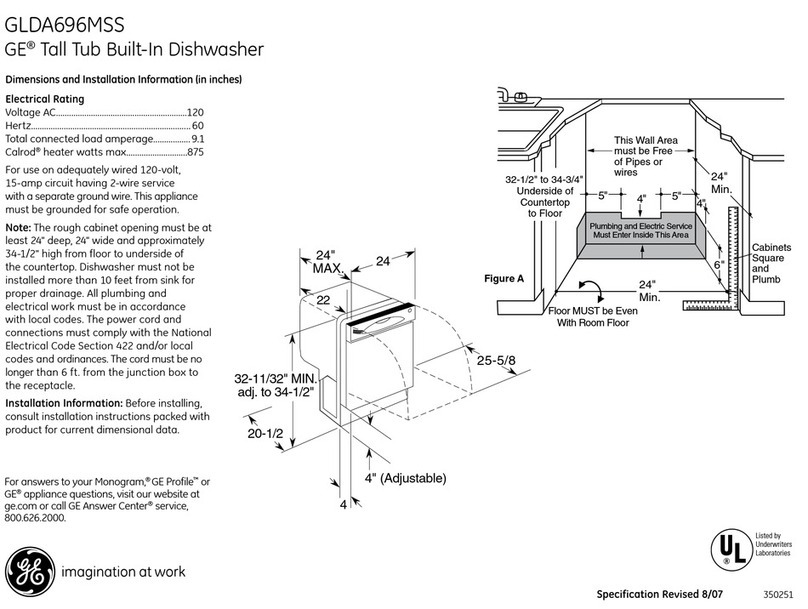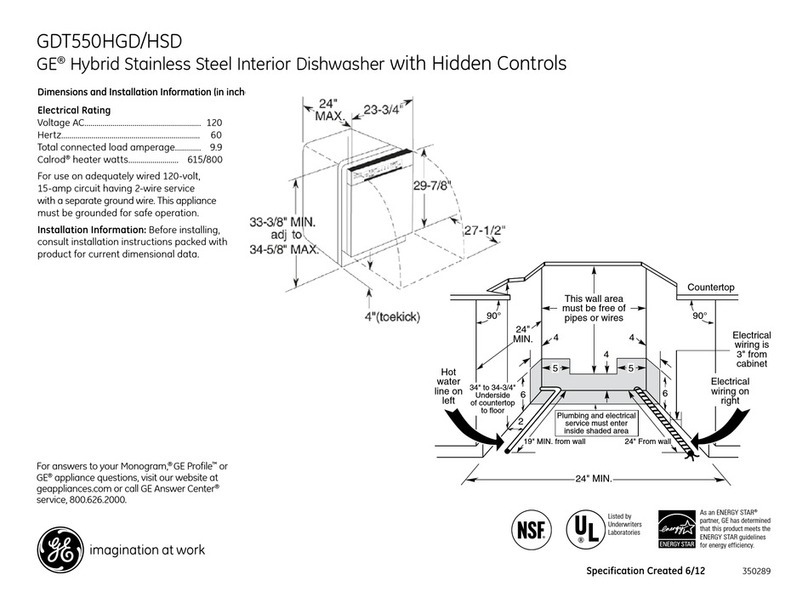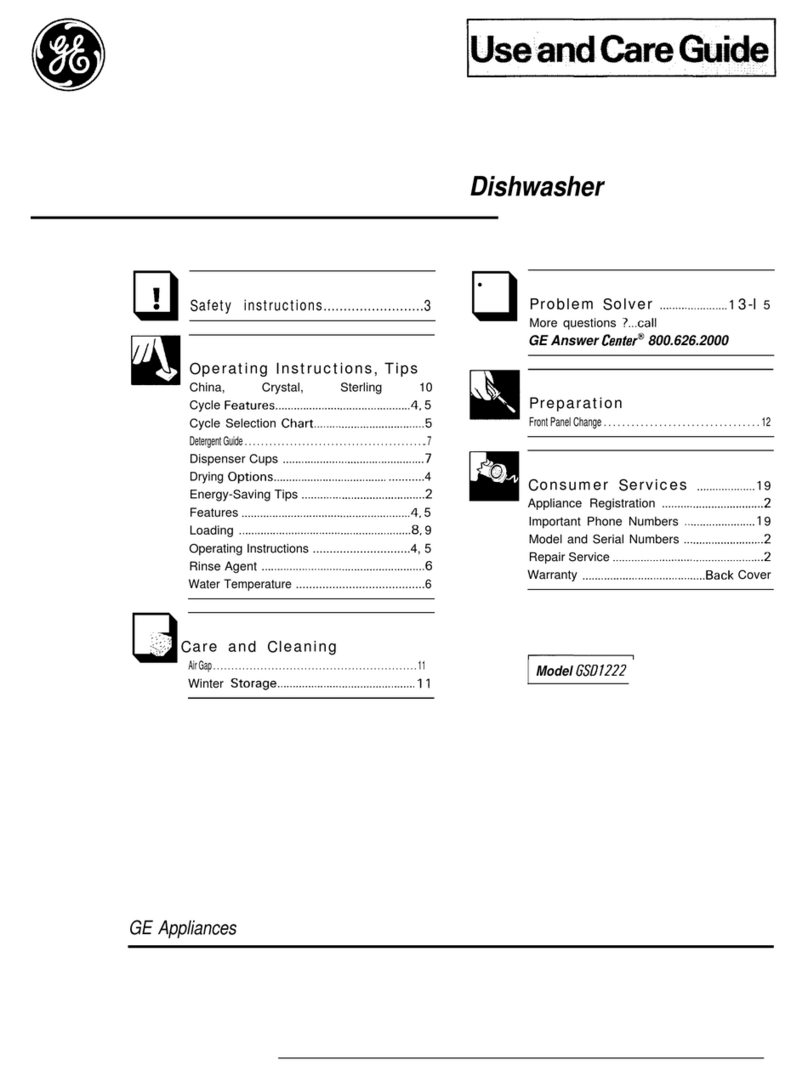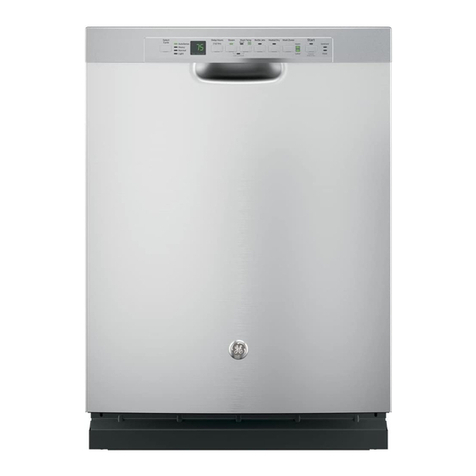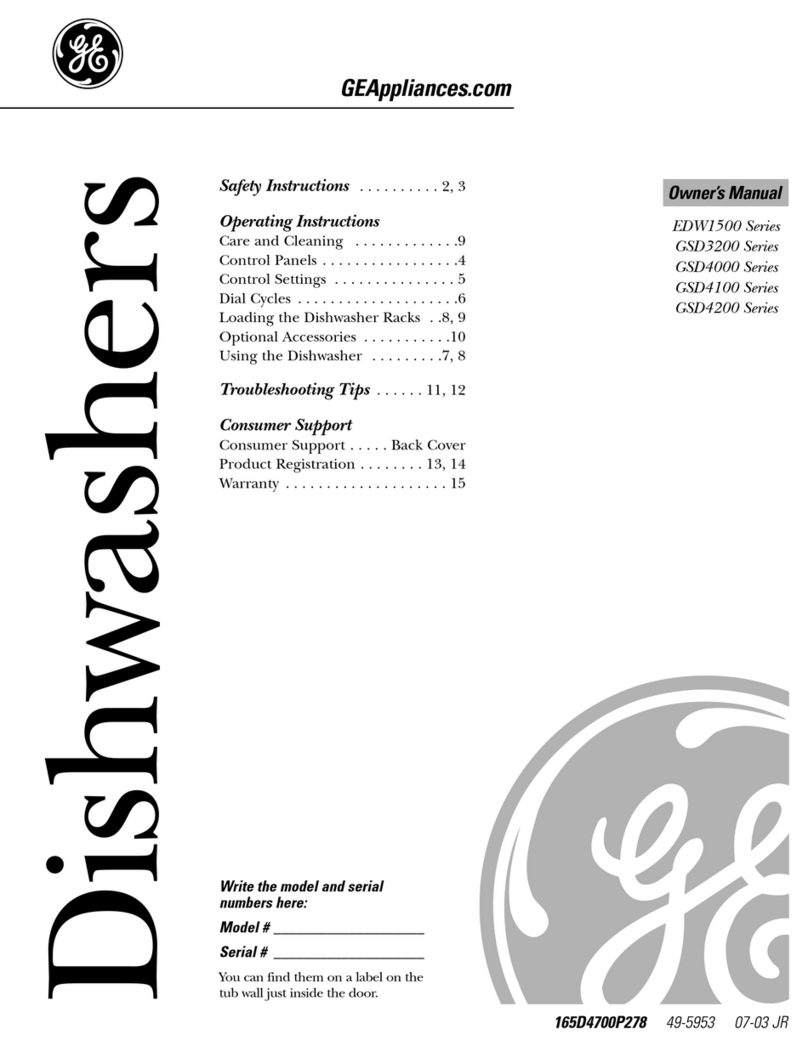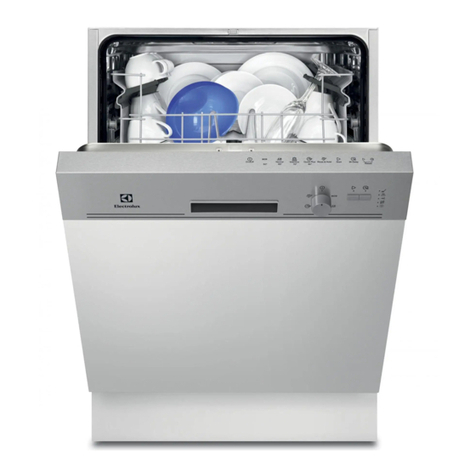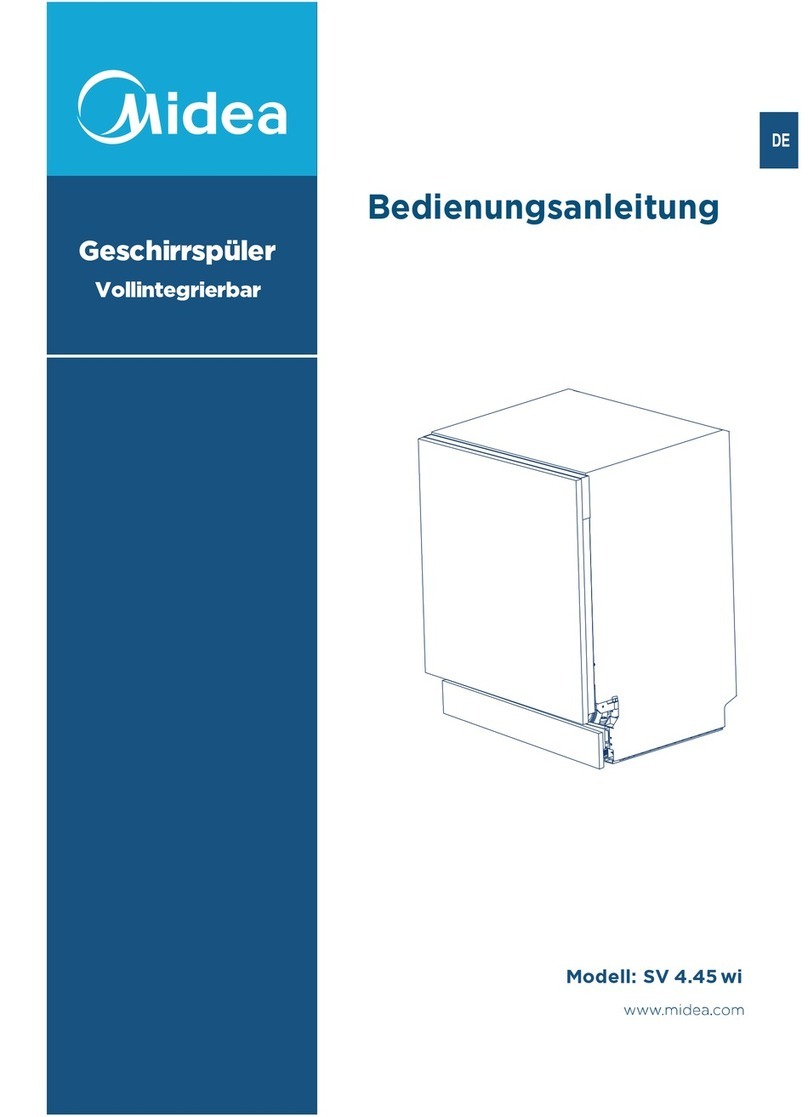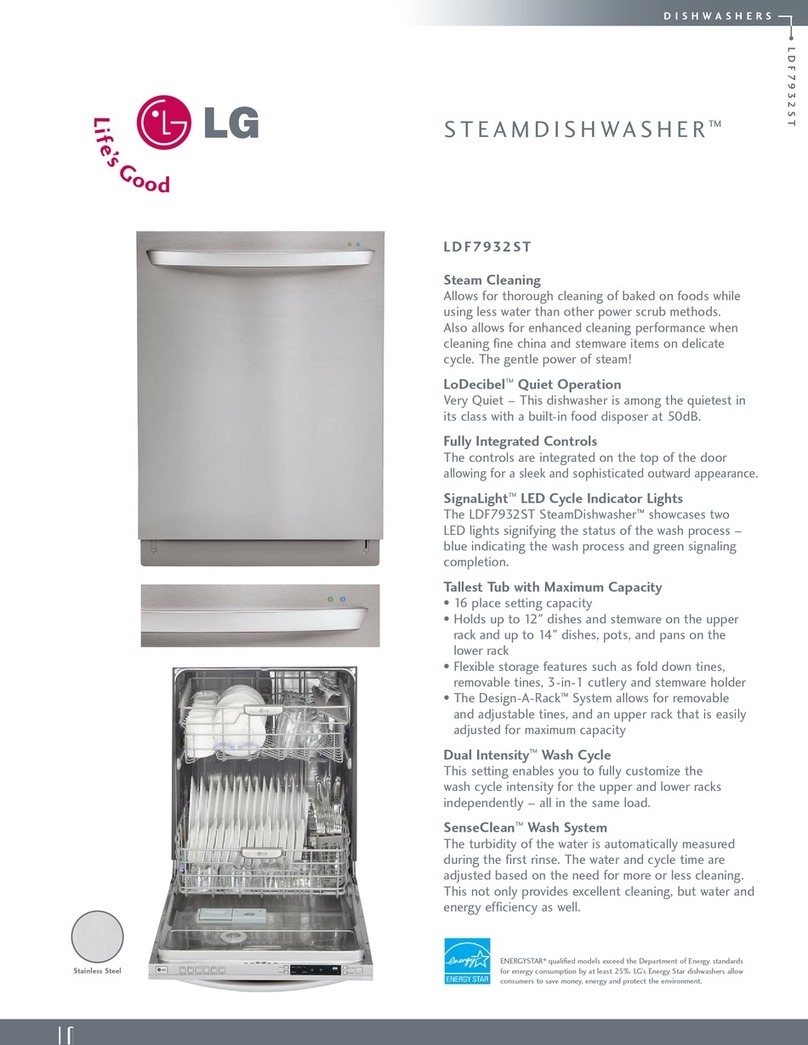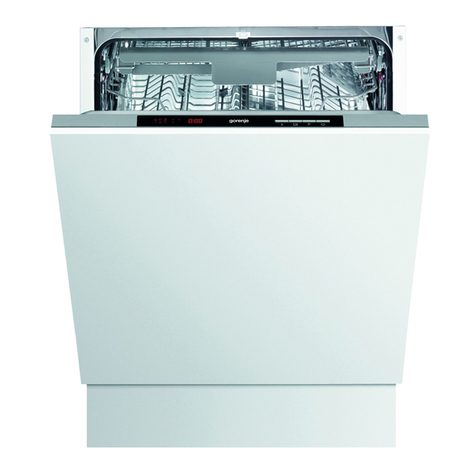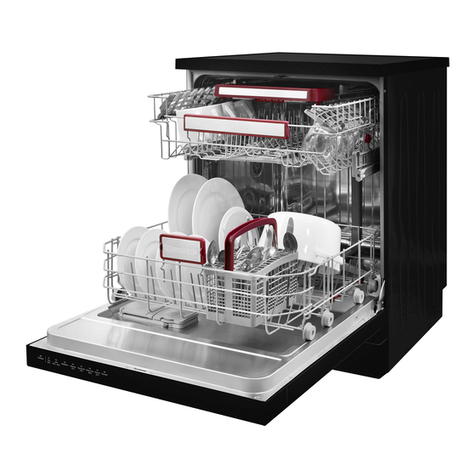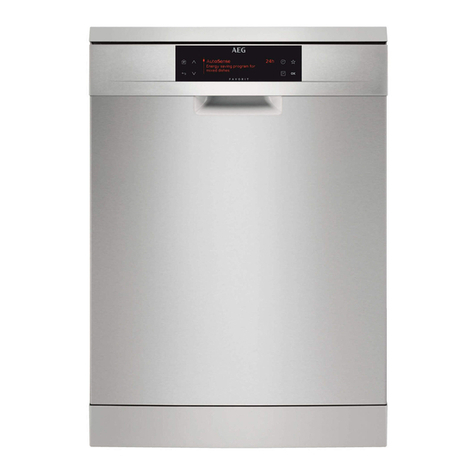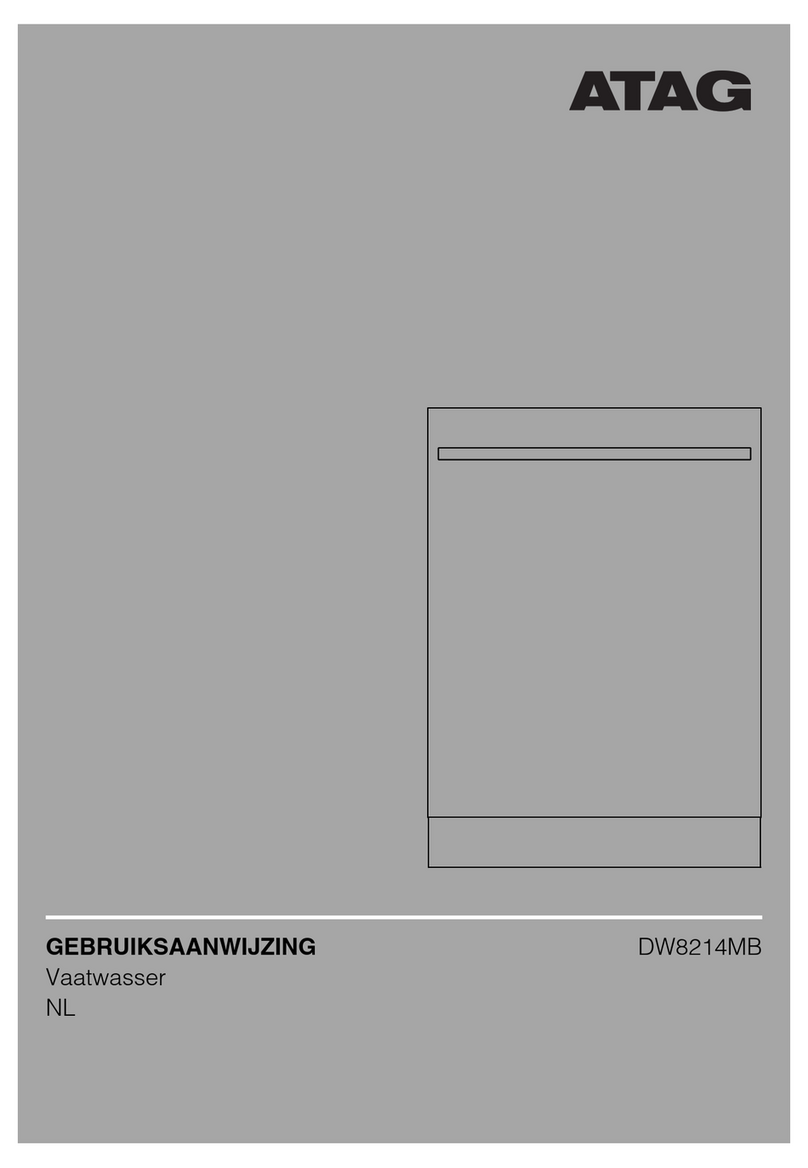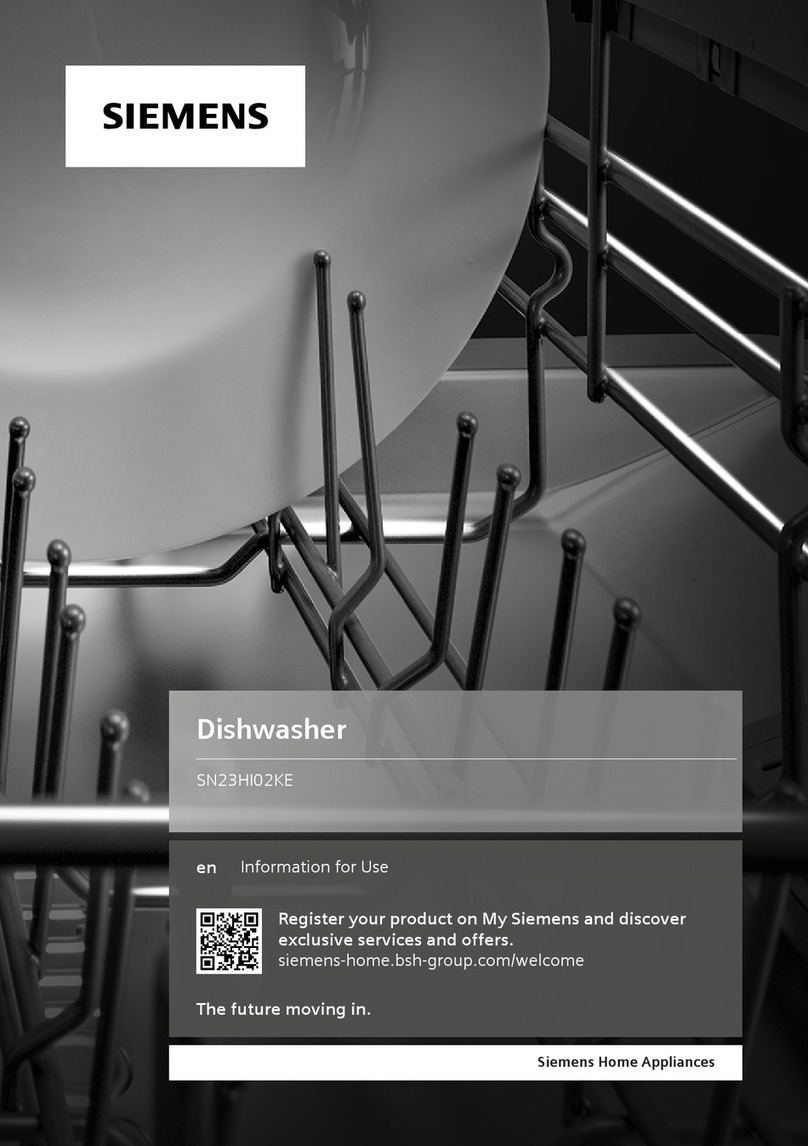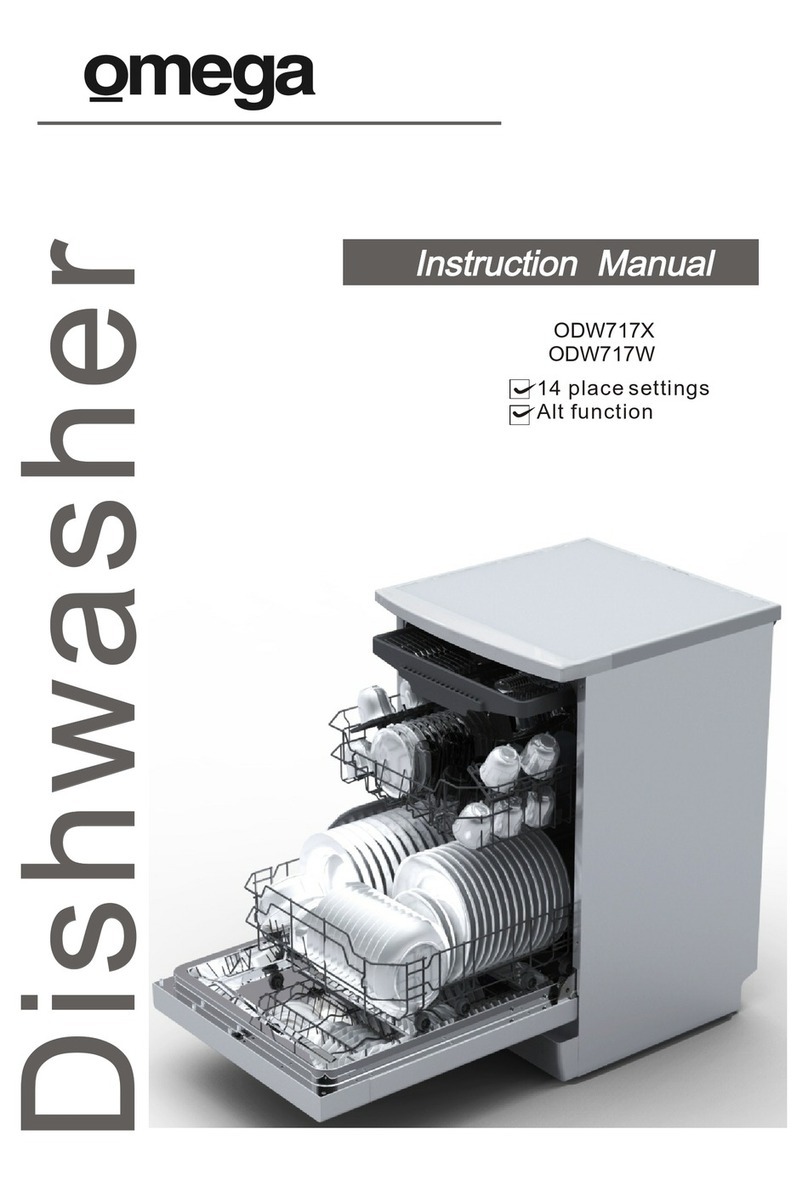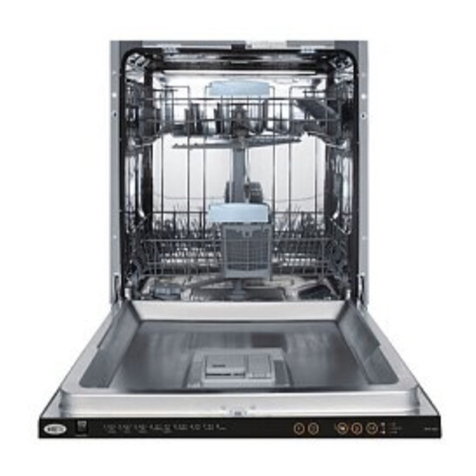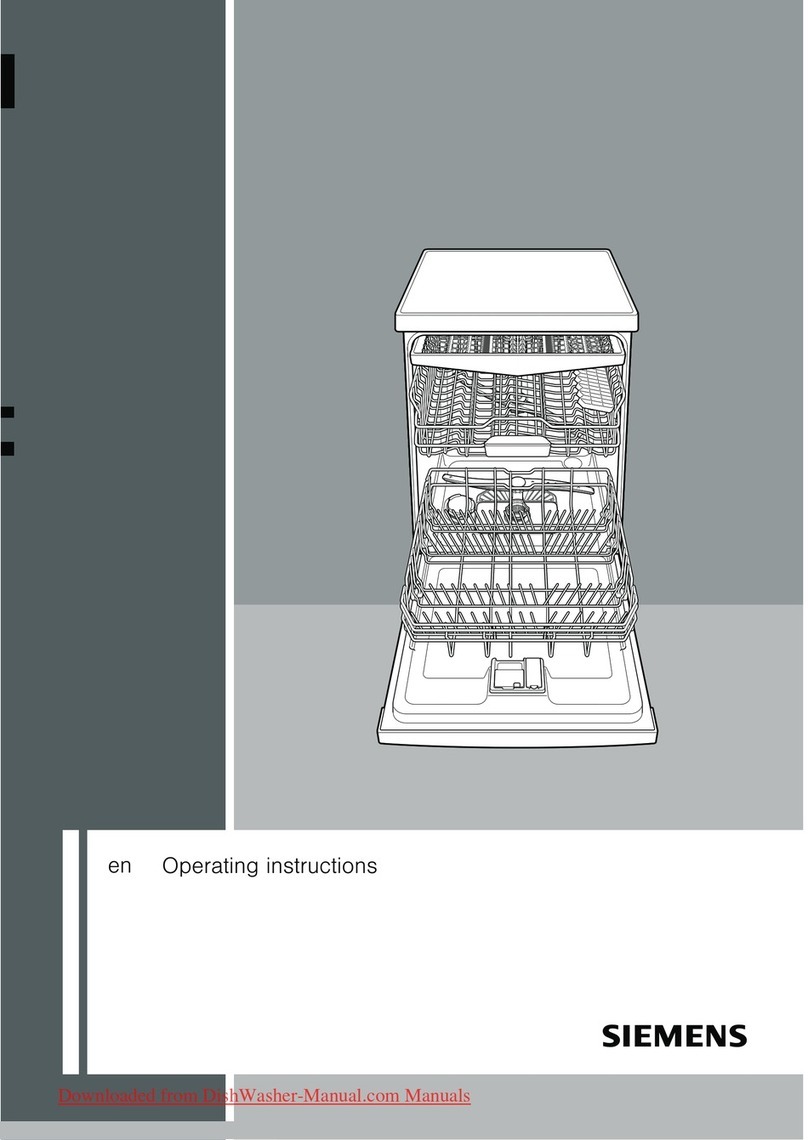Gwxl.dishw’ashingstarts
with HOT water.
Toget dishesclean and dry,you
needhot water.Tohelp you get
waterof theproper temperature,
yourdishwasherautomatically
heatsthe waterin the washcycle.
Forgood washingand drying,the
enteringwater must be at least
120”F.To preventdishdamage,
inletwater shouldnotexceed 150°F.
How to test water temperature:
Higher water temperature is
needed to dissolvegrease and
activatepowder detergents.Check
your water temperature with a
candy or meat thermometer.Turn
on the hot water faucet nearest the
dishwasher.Put the thermometer in
aglass and let the water run
continuously into the glassuntil
the temperature stopsrising. If the
water temperature is below 120”F
adjust your water heater.
Helpful hints: If outside
temperaturesare unusuallylow,or if
your water travelsalong distance
from water heater to dishwasher,
you may need to setyourwater
heater’sthermostatup. If you have
not used hot water for sometime,
the water in thepipes willbe cold.
Turn on the hot water faucetat the
sink and allowit to run untilthe
water is hot.Then startthe
dishwasher.If you’ve recently done
laundry or run hot water for
showers, give your water heater
time to recover before operating the
dishwasher.
To improve washability if the
water is less than 120°Fand you
cannot adjust your water heater:
Select alonger cycle and fill both
detergent cLlpsat least half-full
with detergent.
Hmvtol.lse 23Irimx?fqp’k.o
Arinse agentmakeswater flow off
dishesquicker thanusual. This
lessenswater spottingand makes
dryingfaster,too,
For best dishwashingperformance,
use of arinse agentsuch as J13T-
DRYbrand isrecommended.
Rinse agentscomein eitherliquid
or solidform. Yourdishwasher
uses the liquidform.
How to fill the rinse agent
dispenser. Unscrewthe cap. Add
the liquidrinse agentuntil itjust
reaches the bottomof the lip inside
the dispenseropening.Replacethe
cap. The dispenserautomatically
releases the rinse agent into the
final rinse water.
If you accidentally spill: Wipeup
the rinse agent with adamp cloth.
Don’t leave the spillin the
dishwasher.It can keep your
detergent from working.
If you can’t find any rinse agent,
write:
BENCICISERCONSUMER
PRODUCTS, INC.
(“JET-DRY”)
411 W. Putnam Ave.
Greenwich, CT 06830
How ‘toChooseandl.lse the “
right detergent.
First, use only powder or liquid
detergent specificallymade for
me hi”dishihnshem iMmrtypes
willcause oversudsing.
Second, check the phosphate
content,Phosphatehelpsprevent
hard-watermaterialsfrom forming
spotsor film on yourdishes.If
yourwater is hard (7 grainsor
more),yourdetergenthas to work
harder.Detergentswith ahigher
phosphatelevel will probablywork
better.If the phosphatecontentis
low (8.7%or less),you’llhave to
use extra detergentwith hard water.
Your water departmentcan tell
you how hardyour water is. So
canyour countyextensionagent.
Or your area’swater softener
company.Just call and ask them
how many “grains” of hardness is
in your water.
How much detergent should you
use? Thatdepends.Is your water J
“hard” or “soft”? Withhard water,
you need extradetergentto get
dishesclean. With softwater,you
need lessdetergent. .
Toomuch detergentwith softwater
notonly wastes money,it can be
harmful. It can cause apermanent
cloudinessof glassware,called
“etching.” An outsidelayer of
glassis etched away! But why take
achance when it’seasy to find out
the hardnessof your water.
Keep your detergent fresh and
dry. Under the sink isn’tagood
place to storedetergent.Too much
moisture. Don’tput powder
detergentinto the dispenser until
you’re ready to wash dishes, either.
(It won’t be fresh OR dry.)
If your powder detqymt gets dd
or bll~y~thlWWit away. Old
detergent oftenwon’t dissolve. I-f
you use aliquid dishwasher
detergent, these precautions are not
necessary because liquid detergents @2%
[<;;)
don’t “lump” as they age or come - r
in contact with water. f,=
L.<
